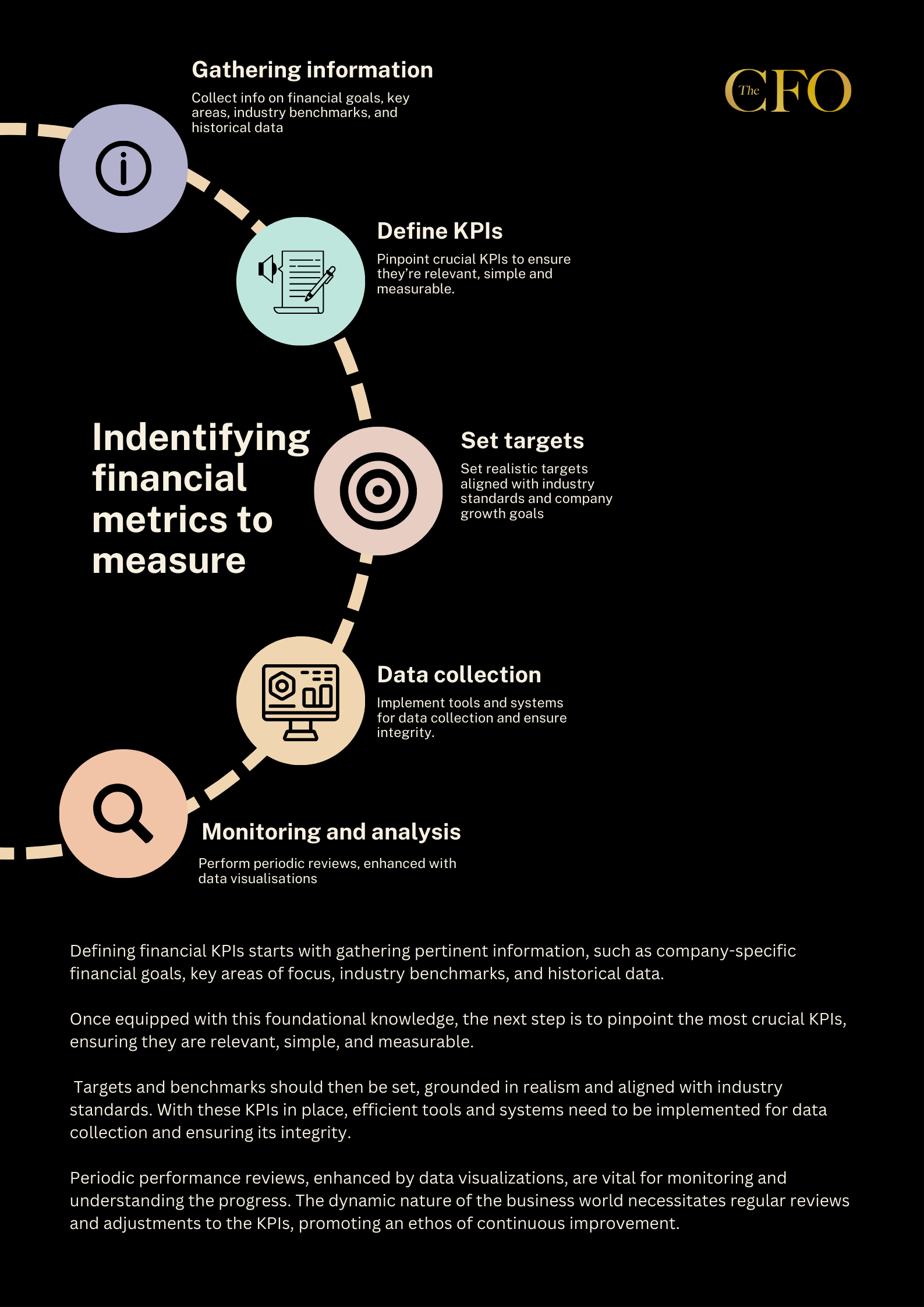CFO’s Playbook: Where can big data offer a competitive edge?
In the vast ocean of big data, how does a CFO determine which metrics - traditional and untraditional - are worth their attention?
In the vast ocean of big data, how does a CFO determine which metrics - traditional and untraditional - are worth their attention?
 In the heart of New York City, a CFO sits in a glass-walled office, staring at a screen filled with numbers. But these are not just any numbers.
In the heart of New York City, a CFO sits in a glass-walled office, staring at a screen filled with numbers. But these are not just any numbers.
They are the lifeblood of the company, streaming in real-time from various corners of the globe.
This is not a scene from a futuristic movie; it is the reality of today’s financial world, where big data is not just a buzzword but a tool reshaping the financial landscape.
Big data has ushered in an era where every transaction, every customer interaction, and even every employee’s movement can be tracked, analysed, and leveraged for insights.
Companies like Amazon and Netflix have already shown the world how data can transform customer experiences. But what about the financial realm?
The likes of JPMorgan and Goldman Sachs have harnessed big data to predict market movements with uncanny accuracy, setting a precedent for others to follow.
In a world where market dynamics shift overnight, the ability to forecast with precision is invaluable. Big data allows CFOs to peer into the future, making predictions based on patterns that would be invisible to the naked eye.
Beyond forecasting, real-time financial monitoring becomes a possibility, enabling CFOs to make swift decisions in response to emerging trends. And then there’s the treasure hunt – sifting through data to unearth hidden cost-saving opportunities or potential revenue streams previously overlooked.
However, the process of blending and making sense of these diverse data streams is no trivial task. It necessitates advanced analytics tools that can sift through vast amounts of data, identify patterns, and extract actionable insights.
Moreover, as data sources come from varied systems, integrating them often involves dealing with different formats, scales, and levels of granularity. This is where a close partnership with the IT department becomes invaluable. Their expertise ensures that data is not only integrated smoothly but is also stored securely, adhering to all compliance norms.
But it does not end there. As we’re well aware, the digital landscape is in a constant state of flux. New technologies emerge, data regulations evolve, and the sheer volume of data businesses have access to is growing at an unprecedented rate.
In this ever-changing environment, the role of the CFO is not just to oversee financial operations but to be a proactive leader in the digital transformation journey. Staying ahead of the curve requires the CFO to be agile, continuously updating their knowledge, skills, and understanding of the latest tools and technologies.
In the vast ocean of data, how does a CFO determine which metrics are worth their attention? Traditional financial KPIs like revenue growth rate and EBITDA remain crucial.
However, the digital age introduces new metrics – from operational ones like inventory turnover to predictive ones that gauge forecast accuracy.
And in the treacherous waters of the financial world, risk metrics become the lighthouse, guiding CFOs away from potential pitfalls.

But with great power comes great responsibility. The data-driven approach is not without its challenges. Ensuring data quality is paramount; a single error can lead to misguided decisions.
Moreover, in an age where data breaches make headlines, safeguarding sensitive financial information while complying with ever-evolving regulations is a Herculean task.
To ensure top-tier data quality, CFOs must approach the process in a structured manner. They can begin with data collection by determining its purpose, defining specific requirements, and selecting an appropriate method.
Once this has been done, they should transition to data entry and recording; accuracy here is paramount. This is followed by data cleaning and validation, eliminating errors, and ensuring consistency.
As the sun sets on the traditional role of the CFO, a new dawn emerges, one where data is the compass guiding financial strategies.
The journey ahead is filled with opportunities and challenges, but one thing is certain: in the world of finance, big data is the North Star, and those who navigate by it will find their way to success.